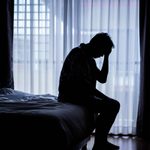Colonoscopy Preparation Tips: What Doctors Tell Their Friends
The physicians of the hit TV show The Doctors share share when to get a colonoscopy and how to prep for it.

First of all, get tested if you’re over age 50 or your doctor recommends it sooner. Colonoscopy is the most widely used screening test for colon cancer, which is second most commonly diagnosed cancer in Canada. On average, 25 Canadians will die of colorectal cancer every day. Colon cancer almost always begins as abnormal growths called polyps, which can be detected and removed during a colonoscopy, dramatically lowering your risk of developing the disease. And yet, many Canadians ignore this straightforward way to monitor their health and lower their cancer risk.
Two of us—Jim Sears, MD, and Travis Stork, MD—recently underwent colonoscopies on the air. So we grilled experts for advice on everything from choosing a doctor to gulping down the prep. Here’s what we want you to know about our experience.
“It’s no worse than a visit to the dentist”
“I’ve had three colonoscopies,” says Dr. Sears. “After each one, I wake up and think, You know, that wasn’t so bad. The worst part is just booking the appointment. Even the notoriously dreaded prep—drinking certain fluids or taking pills to flush out your system so your doctor can see every nook and cranny of your colon—feels kind of like a cleanse. It’s a day of not putting junk into your gut.”
“You feel fine? That’s the perfect time to be tested”
The logic among many patients goes, “I’m OK. Why should I have this procedure?” says Anish Sheth, MD, attending physician at the University Medical Center at Princeton in New Jersey. “But it’s most important [to have a colonoscopy] to find polyps before they turn cancerous.”
“Ask two key questions”
Not all doctors perform colonoscopies equally well. A less-than-thorough procedure may miss polyps or lead to complications like a tear in the bowel. Ask the doc about his “adenoma detection rate”—the percentage of patients in whom he finds precancerous polyps. This metric isn’t universally adopted, and many doctors may not know. (An ideal number is at least 15 per cent for women and at least 25 per cent for men.) If the doctor doesn’t know his rate, ask how many procedures he performs each day. You don’t necessarily want to choose someone who does just one, but a physician who does 20 may be prone to fatigue or be rushing through them.
“Split your prep time”
Taking half of the preparation the evening before and half the morning of the procedure is becoming more common, says Harry Sarles, MD, president of the American College of Gastroenterology. (With this type of prep, you typically need to take only one day off from work.) Research shows this method clears the bowels more effectively. This may mean it will be less likely that you’ll have to repeat the test because your colon was too clogged for your doctor to see it well.
“Constipated? Modify your diet for a few days before”
Most patients start a “clear liquids only” diet the morning of the day before a colonoscopy. But if you’re prone to constipation, your doctor may recommend that you follow a liquid diet for an extra day and eat a low-fibre diet for up to a week before. Since fibre is hard to digest, it takes a while to leave your colon.
“Request de-bloating”
As part of the test, air is pumped into the colon to expand its walls for a better view. Some docs use carbon dioxide instead because it exits the body more quickly and reduces bloating afterward. If your physician injects air, ask her to suction it out at the end of the procedure, which helps minimize gassiness and bloating.
Make sure to read 13 Signs of Cancer Men Are Likely to Ignore.



